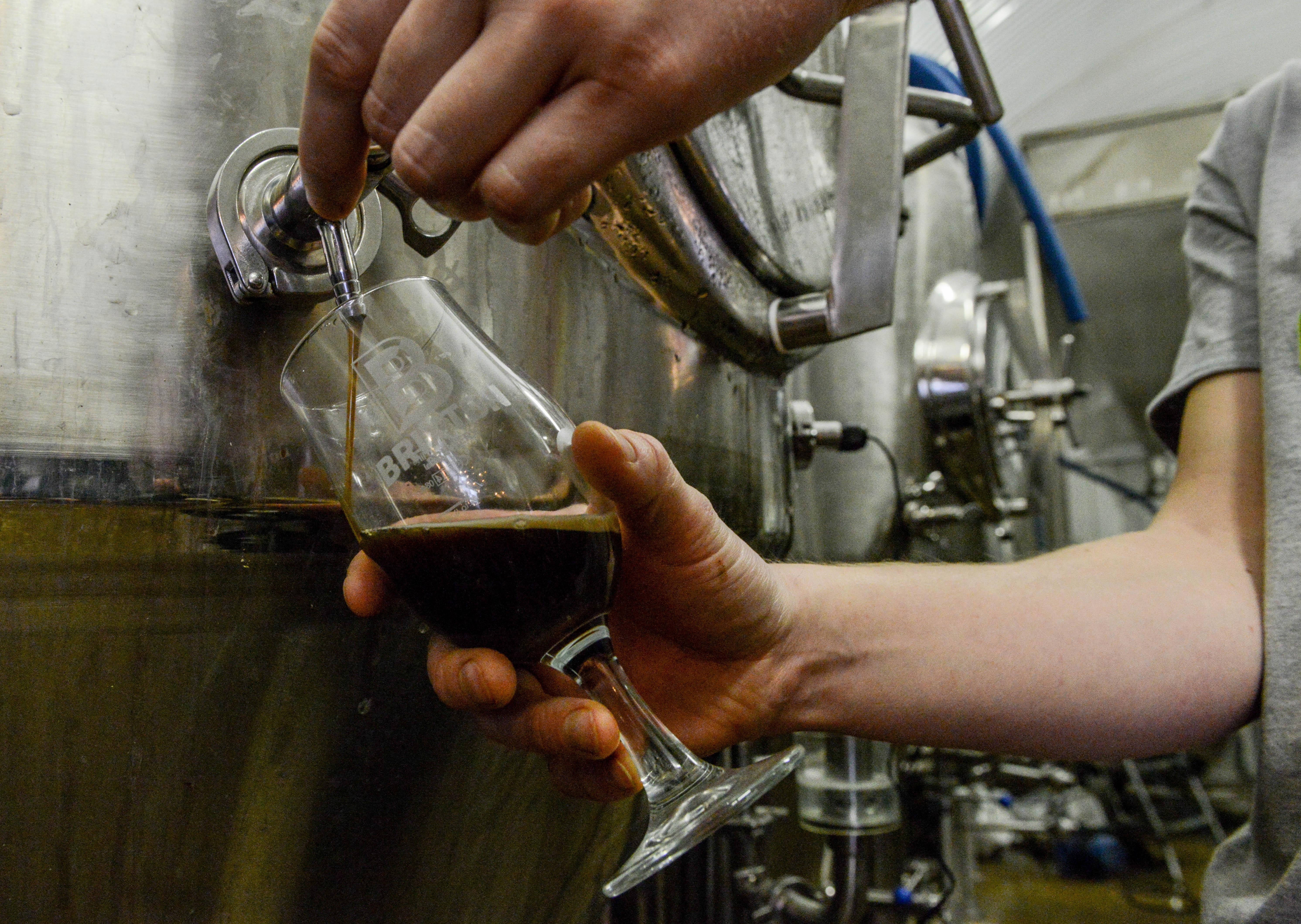This question originally appeared on Quora, the knowledge-sharing network where compelling questions are answered by people with unique insights. You can follow Quora on Twitter, Facebook, and Google Plus.
Answer by Don van der Drift, data science manager, homebrewer:
When beer is made, during the first phase, sugars are extracted from the grains using warm water. The resulting sugary water, or wort, has a slightly higher density than water does—for common ales it’s around 4 to 7 percent higher. After boiling and reducing that wort, the density goes up even further to 5 to 8 percent.
During the last phase of beer-making, the yeast will start to convert these sugars into alcohol. The density of alcohol is lower than that of water, and as such the net density of the beer, as the sugar levels decrease and alcohol levels increase, drops usually to a 0 to 2 percent range. At the bottom of that range, very little sugar is left behind by the yeast in favor of alcohol created.
If you ever had a very high proof (high ABV) drink, such as Stroh 80 (80 percent ABV, or 160 proof), you will have noticed that alcohol has a very drying effect on your mouth. On the other hand, if you put a lump of sugar on your tongue, your saliva will quickly wet your mouth instead. So you can imagine that relatively a beer that has lower levels of residual sugar after the yeast stopped fermenting will taste relatively dryer than a beer that had higher levels of residual sugar, as measured by the beer’s density.
As you can see, the dryness of a beer has nothing to do with water.
Why were some styles of beer called dry beer when all beer contains a lot of water? originally appeared on Quora. More questions on Quora:
